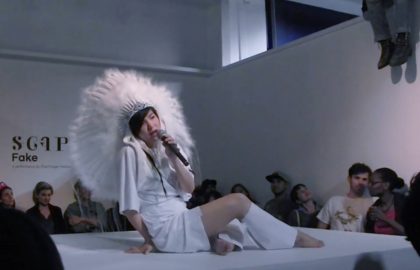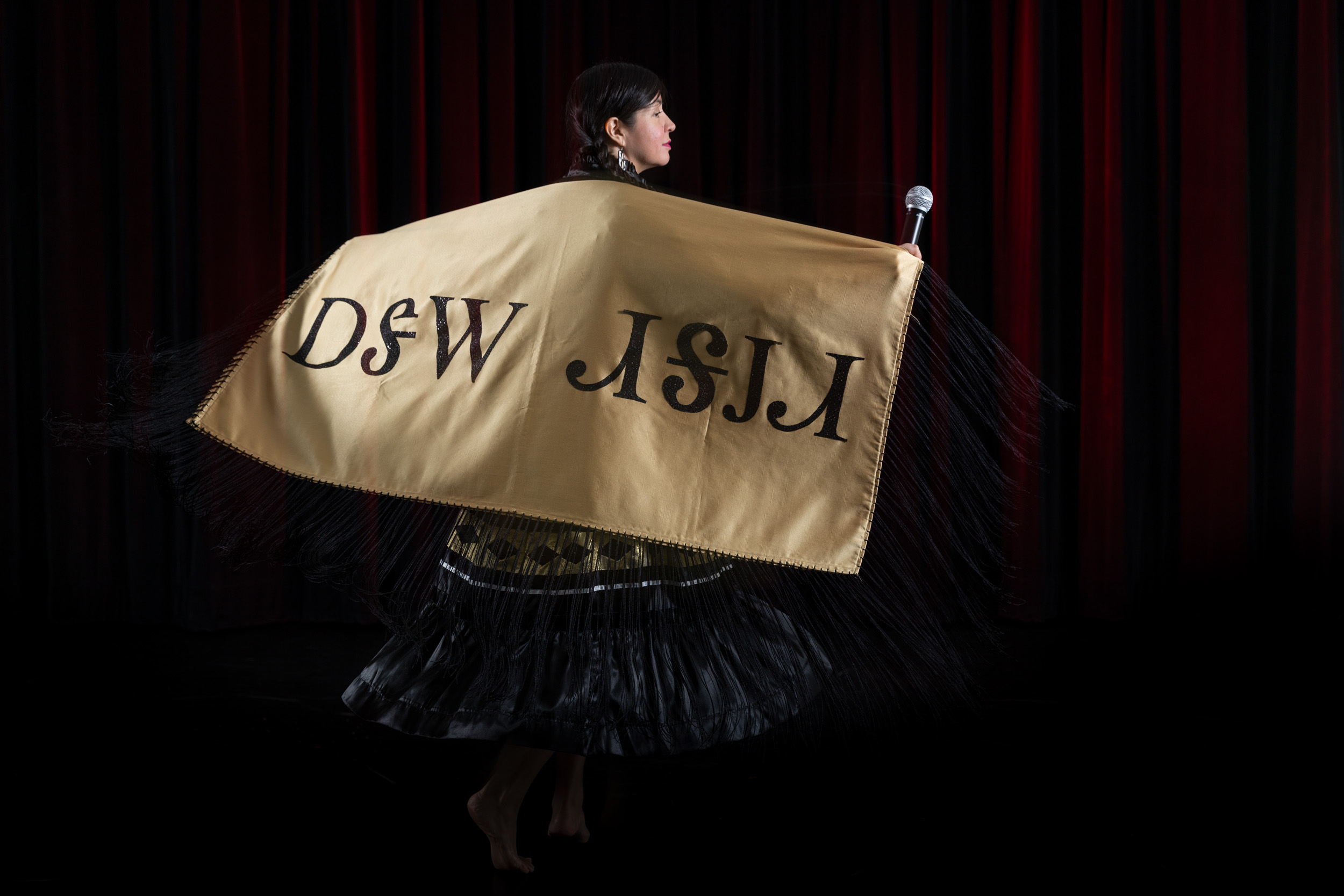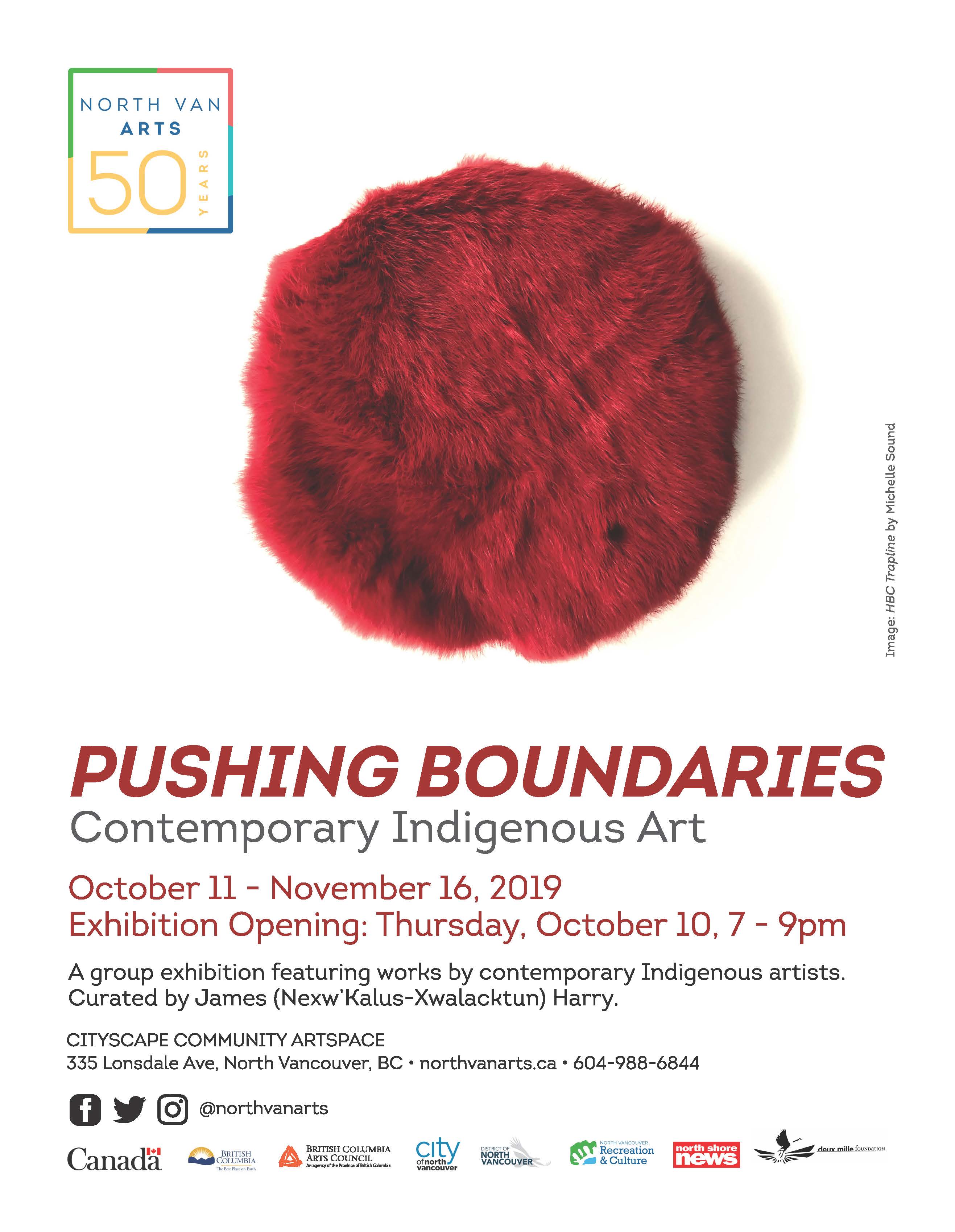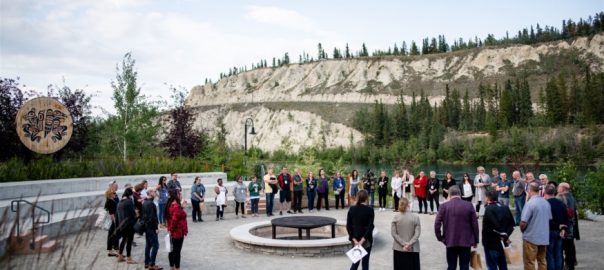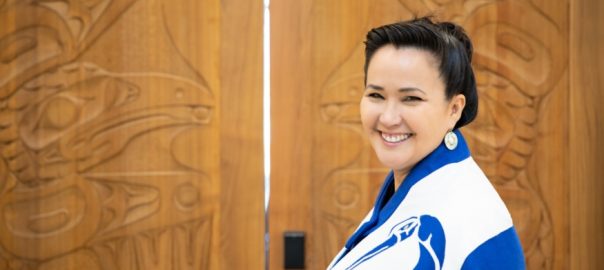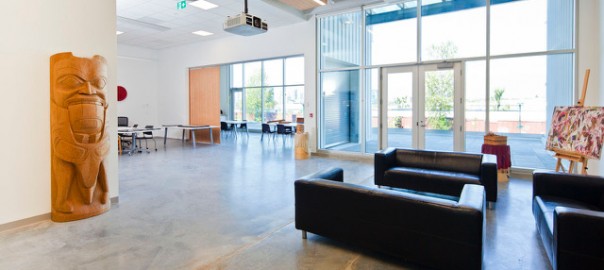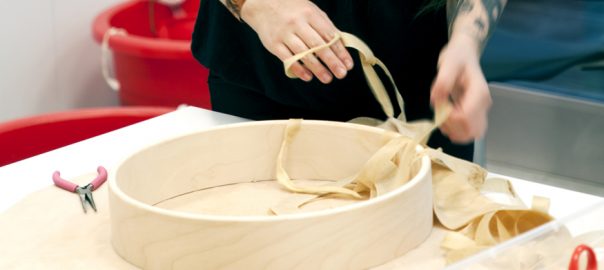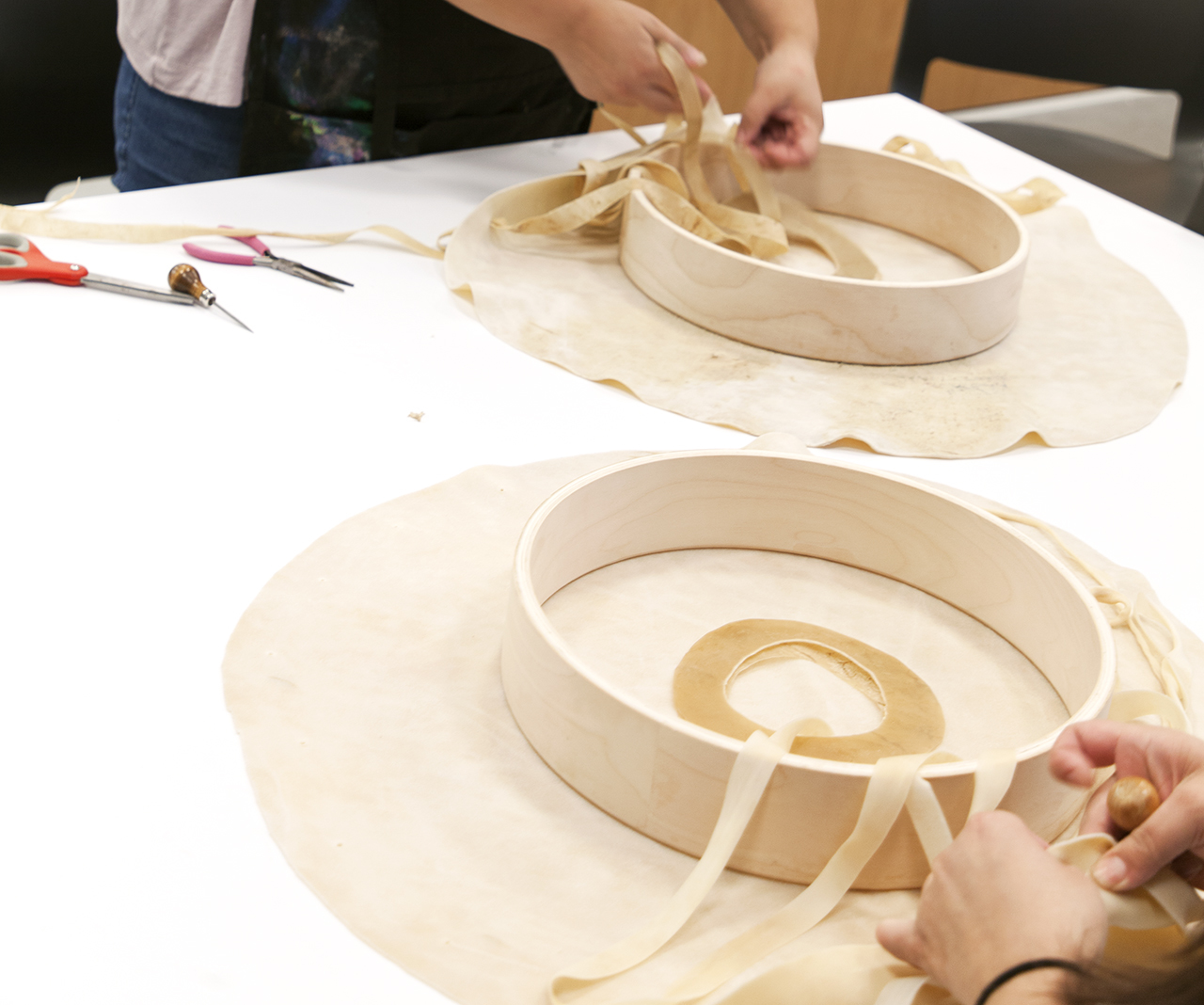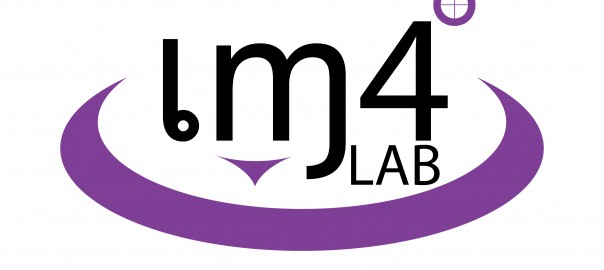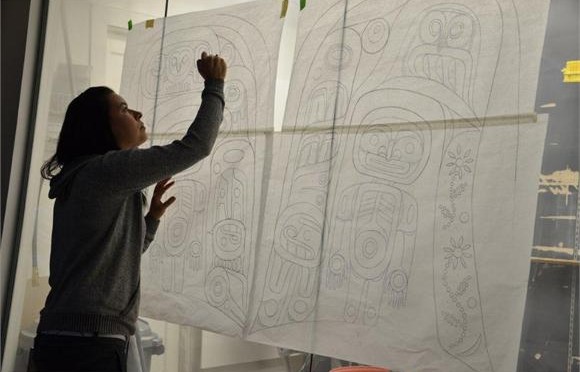“If everything in this world is a living part of you, how would you speak to it?”
For Connie Watts, Emily Carr University’s recently-hired Associate Director of Aboriginal Programs, there’s only one answer.
And Connie — over the course of describing her extraordinary journey, and the ways in which her unique experiences as an artist, designer and educator interact with her perspectives as a woman of Nuu-chah-nulth, Gitxsan and Kwakwaka’wakw ancestry — gently illustrates that answer again and again.
Consider the process of critiquing an artwork, she offers.
“You’re not critiquing an object, you’re critiquing a living thing,” she says.
“And if it was a living being in front of you, you wouldn’t disrespect it. You would look and find what the strengths were, and how you could help build those strengths. You would learn to understand the piece through the life of it.”
The same goes in any learning situation, whether art or life, she adds. In acknowledging the fundamental equality between ourselves and the world around us, we find ourselves responsible to care for the world as we care for our own flesh and blood.
Applying such a worldview to the governance of spaces such as universities, businesses or professional relationships, she notes, is part of what decolonization is about.
“In this world today, we’re looking for this odd thing called ‘perfection.’ But’s that’s a ‘imposed human concept’,” she says.
It’s also an idea that begs further questions, she adds, such as “whose idea of perfection are we referring to?” The same goes for academia, she notes. Whose idea of what constitutes academia are we pledging allegiance to when we accept or reject strategies regarding pedagogy, scholarship and research?
To commit to interrogating our assumptions about these terms — perfection, academia, self vs. other — is to commit to developing our understanding “about how you open doors to different ways of understanding and knowing.”
This task, Connie suggests, is a crucial undertaking for contemporary educators, and is very much at the heart of her own approach to education.
Full article and Profile of Connie Watts by Perrin Grauer :
https://www.ecuad.ca/news/2019/faculty-profile-connie-watts
